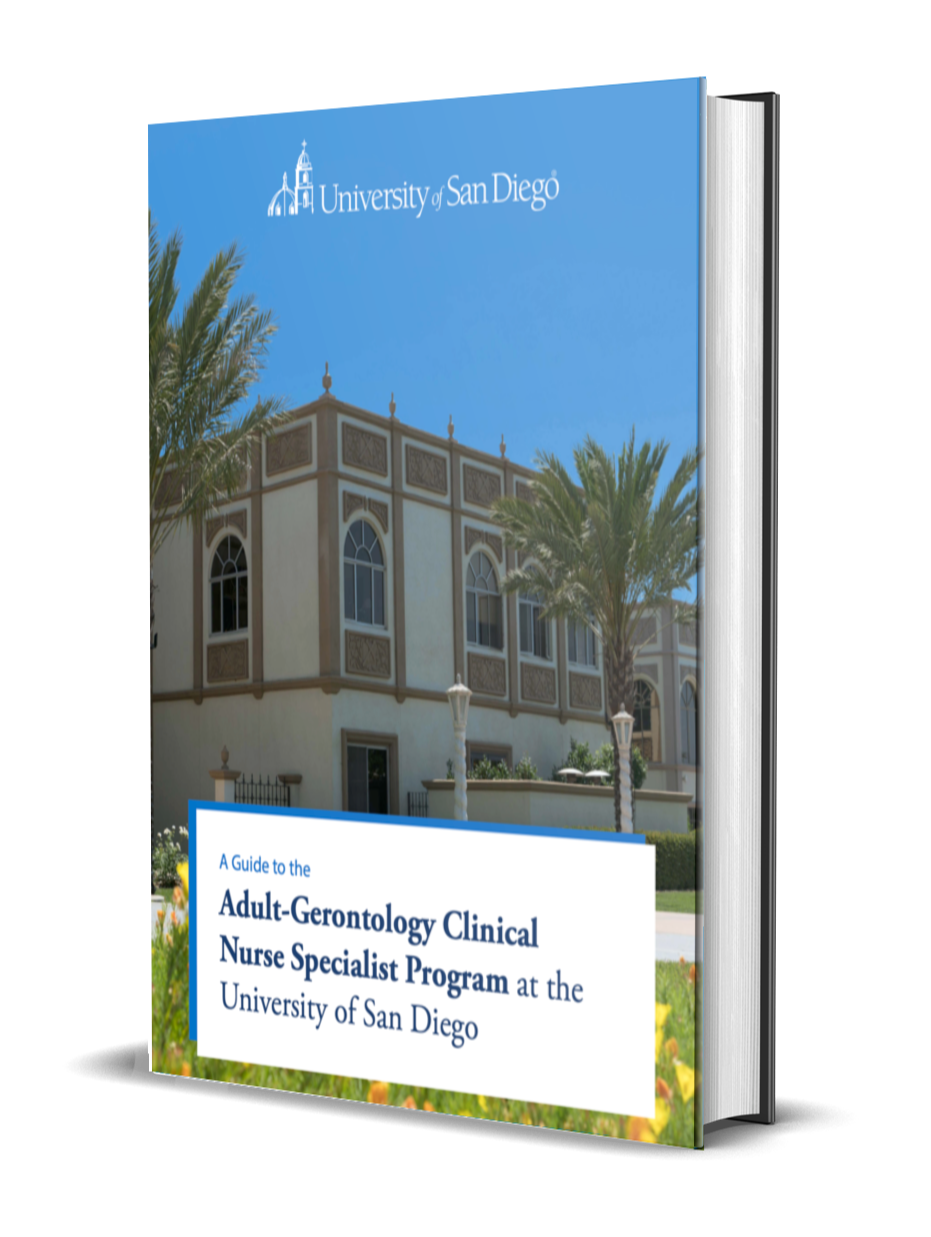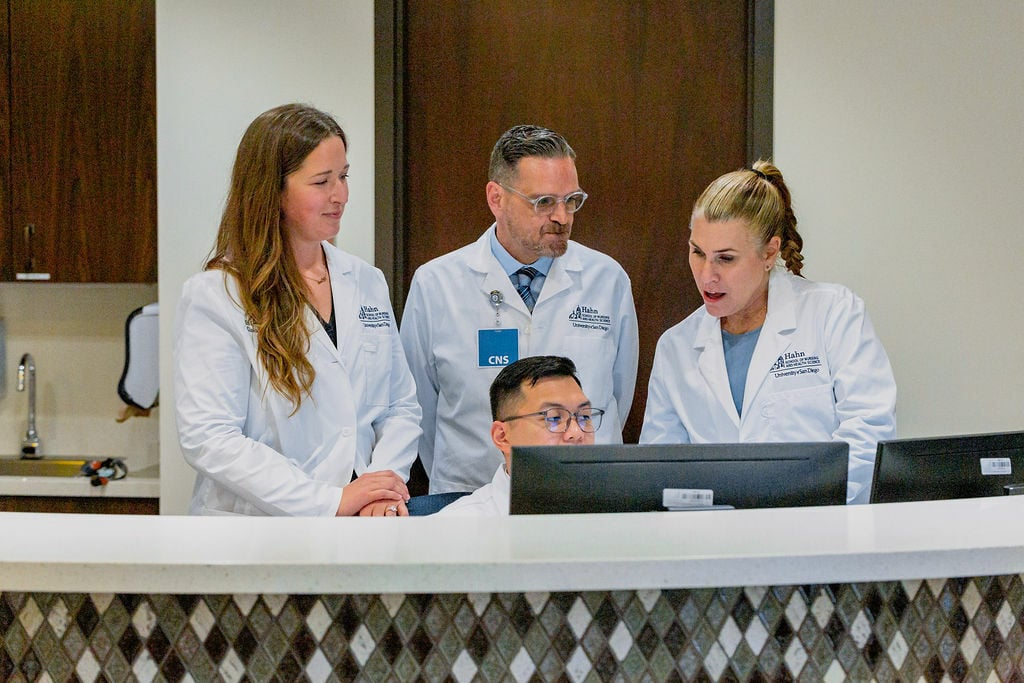
Discover the Benefits of a Nursing Degree From USD
Evidence-Based Practice — Why It Matters
The information in this blog post is for informational purposes only and is not intended to replace medical, financial, or professional advice.
To understand the importance of evidence-based practice in health care today, one only needs to revisit colonial times.
In the 18th century, colonial-era medical doctors had no government body or regulations to adhere to, and those who were trained were scarce outside cities. Medical care oftentimes fell to those who could read and wield a knife, midwives, herbalists, even practitioners of magic. In those days, a blacksmith doubled as a dentist — they already had the sharp tools necessary.
Colonial health care revolved around the idea that the illness needed to be physically removed from the body. Among other practices, patients were given treatments like:
- Bloodletting
- Sweating
- Leeches
- Enemas
- Forced vomiting (through mercury ingestion — which we now know is poison for the body).
Back then, people believed that these remedies were “good for what ailed them;” and their faith was bolstered with every recovery (regardless of how rare).
You can blame the post hoc, ergo propter hoc fallacy for this understanding: since B event followed event A, event B must have been caused by event A. It’s tempting to believe because correlation sometimes appears to suggest causality. But we must take into account the other factors for the result, as they might rule out the “connection.”
We’ve come a long way since the 18th century: from germ theory to the discovery of penicillin to providing evidence-based care. But what does that mean exactly, and why is it so important in health care today?
What is evidence-based nursing?
The term “evidence-based practice (EBP)” was first used to describe a best practice approach to providing nursing care in 1997. Muir-Gray defined evidence-based practice as “an approach to decision-making in which the clinician uses the best available evidence in consultation with the patient to decide upon the option which suits the patient best.”
The definition has been refined since then and now refers to “the process of collecting, processing, and implementing research findings to improve clinical practice, the work environment, or patient outcomes.”
Conversely, supporters of evidence-informed practice suggest that, in addition to research findings, nursing care should not be “based on” research alone but rather “informed by” the nurse’s experience, clinical expertise, and the patient’s experiences.
Why should nursing practices be evidence-based?
Here are just a few of the many reasons why nursing practices should be evidence-based
Nurses can be confident in their decisions.
One key advantage of an evidence-based approach is that it allows nurses to make more objective decisions about care that are supported by research rather than relying on their judgment and experience alone. By considering the latest research findings, nurses can tailor their care to meet the specific needs of individual patients.
Nurses can protect themselves.
Using an evidence-based approach to one’s nursing practice can also help protect a nurse from complaints about poor or ineffective nursing care and incompetence. Nurses who can demonstrate that they engage in evidence-based practice may avoid having their license suspended or revoked because they haven’t practiced according to recognized standards of nursing practice that are based on research findings.
EBP helps nurses stay informed.
Evidence-based practice (EBP) helps nurses to stay up to date on the latest developments in their field. As a result, they’re better able to provide high-quality care that is safe and effective in improving patient outcomes.
Nurses can cut costs.
Because cost containment is an ongoing concern for employers, nurses are also expected to use evidence-based practice to support their clinical decision-making and use of supplies.
We see better outcomes.
Perhaps most importantly, evidence-based practices have been shown to produce better patient outcomes whereas research using an evidence-informed approach is lacking.
For example, research has identified that using clippers for hair removal instead of shaving prior to Cesarean delivery (CD) reduces the risk of postoperative surgical site infections (SSI) in women. Other evidence-based studies have shown that helping patients with chronic pain focus on their personal resources for coping “can improve their outlook—and minimize the impact of pain in their lives.”
What are evidence-based strategies?
When evidence-based strategies are used, it means that healthcare providers are using the most up-to-date, effective research findings to care for patients, enhance their nursing practice, or to improve the healthcare environment for patients and nursing staff.
There are many different types of evidence-based strategies in nursing, including approaches for using specific protocols to treat certain medical conditions such as monitored, titrated, and controlled oxygen therapy for acute COPD exacerbations.
The occurrence of alarm fatigue and nursing theory that suggests critical care nurses may become desensitized to medical alarms putting patients at risk is a real problem supported by research. One evidence-based strategy researchers have tested and proposed is an alarm management program to help reduce alarm fatigue for nurses in critical care and step-down units to improve patient safety.
Ultimately, the goal of using evidence-based practice in healthcare is to provide the best possible care to patients at the lowest possible cost, based on the latest scientific evidence or to improve the healthcare environment. By using evidence-based strategies, healthcare providers can be confident knowing that they are providing the highest quality of care possible at any given time.
How will an MSN in Executive Nurse Leadership prepare me to find evidence-based solutions and implement them?
Completing the MSN Executive Nurse Leader track or MSN Nursing Informatics Track from the University of San Diego Hahn School of Nursing will prepare you with the skills and knowledge necessary to find evidence-based solutions and implement them in the real world.
In addition to our MSN offerings, our Doctor of Nursing Practice programs are also designed to teach you how to find, analyze, and put into practice evidence-based solutions that get desired results. These are for nurses who want advanced preparation as a nurse leader (ENL), nurse informatics, or nurse practitioner.
With a DNP degree, you can choose to practice to the top of your license, or you can find yourself eligible for high-level leadership roles when you specialize in either the DNP Health Systems Leadership Track or the DNP Nursing Informatics and Data Science Track.
In both our MSN and DNP programs, you’ll learn how to:
- Find and use data to make decisions
- Develop and implement change initiatives, and
- Advocate for improved patient care using research to support your recommendations.
In addition, our MSN programs will provide you with the opportunity to network with other nursing faculty and leaders in nursing so you have the opportunity to see nurse leaders in action in a variety of healthcare settings. Upon completion of the program, you’ll be prepared to take on a leadership role within your organization and make a positive impact on patient care.
Evidence-based practice (EBP) is a vital component of leading and managing in nursing. By staying up-to-date on the latest research and using data to inform decision-making, nurse leaders can ensure that the care they provide is of the highest quality. In addition, EBP can help to improve patient outcomes, reduce costs, and make the healthcare environment a better place for both staff and patients. As the healthcare landscape continues to change, nurse leaders who become EBP experts will be well-positioned to meet the challenges of the future.
Depending on your leadership interests, be sure to check out some of our nurse leader resources:
- Nursing Informatics Guide
- A Guide to Achieving the DNP (MSN to DNP)
- A Guide to Achieving the DNP (BSN to DNP)
Infuse evidence-based practice into your caregiving, and learn more about the University of San Diego School of Nursing!
The information provided by USD’s Hahn School of Nursing and Health Science is for informational purposes only and is not intended to replace professional medical or financial advice. This includes, but is not limited to, blog posts, eBooks, webinars, emails, graphics, social media posts, and other content. Always seek the guidance of your physician or a qualified medical or financial professional.
A Guide to the University of San Diego's Adult-Gerontology Clinical Nurse Specialist Program
The University of San Diego's nursing program ranks among the best in the nation. But that's not the only reason future students walk through our doors to pursue one of our graduate degrees. Download our guide for an in-depth look at the Adult-Gerontology Clinical Nurse Specialist program and learn how our rich heritage of excellence in nursing education can help you achieve your academic and professional goals.
GET THE GUIDE


.jpeg)





